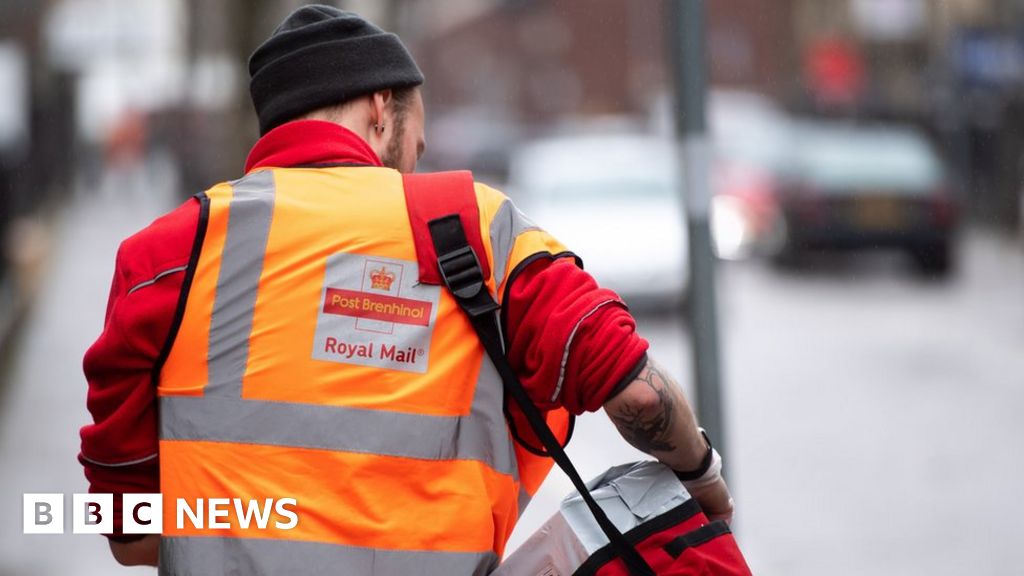- By Nick Edser
- Business reporter
Image source, Getty Images
Royal Mail has been fined £5.6m by the regulator for failing to meet its first and second class delivery targets.
This caused “considerable harm” to customers, and Royal Mail did not take sufficient action to prevent it.
Royal Mail said it was “very disappointed” with its performance, adding that last year had been “uniquely challenging”.
It added its quality of service had been hit by the long-running industrial dispute, which led to 18 days of strike action.
Under Ofcom’s rules, Royal Mail has to deliver 93% of first class mail within one working day and 98.5% of second class mail within three working days.
But in 2022-23, Royal Mail only delivered 73.7% of first class mail on time and 90.7% of second class mail on time.
Ofcom said in May that it would investigate Royal Mail’s performance, to consider whether any “exceptional events” explained why Royal Mail had fallen short.
However, the regulator found that even when the impact of strike action, extreme weather and the runway closure at Stansted airport was taken into account, Royal Mail’s first and second class performance was only 82% and 95.5% respectively.
“Clearly, the pandemic had a significant impact on Royal Mail’s operations in previous years. But we warned the company it could no longer use that as an excuse, and it just hasn’t got things back on track since,” said Ian Strawhorne, Ofcom director of enforcement.
“The company’s let consumers down, and today’s fine should act as a wake-up call – it must take its responsibilities more seriously. We’ll continue to hold Royal Mail to account to make sure it improves service levels.”
Ofcom said the fine included a 30% reduction after Royal Mail admitted liability and agreed to settle the case. The money will be paid to the Treasury within two months.
A Royal Mail spokesperson said: “We are very disappointed with our quality of service performance in 2022-23 and acknowledge Ofcom’s decision today.
“Last year was uniquely challenging for Royal Mail. Quality of service was materially impacted by the long-running industrial dispute which included 18 days of strike action.
“Quality of service is extremely important to us. We take our commitment to delivering a high level of service seriously and are taking action to introduce measures to restore quality of service to the level our customers expect.”
Ofcom also said it had looked into whether Royal Mail was prioritising the delivery of parcels over letters, following complaints that it had been doing so.
The regulator said it found no suggestion that Royal Mail’s senior management had prioritised parcels over letters, apart from in recognised contingency plans covering the pandemic or last year’s strike action.
However, it added that it was concerned that the company “appears to have insufficient control, visibility and oversight over local decision-making at certain delivery offices where high absence and vacancies may have led to customer operations managers… making ‘on the day’ decisions about what to deliver”.
Ofcom said Royal Mail needed to ensure these managers had sufficient training to make such decisions.
“We will be keeping a close eye on the company’s performance this year, and the steps it is taking to return delivery offices to pre-Covid practices,” Ofcom said.

Robert Johnson is a UK-based business writer specializing in finance and entrepreneurship. With an eye for market trends and a keen interest in the corporate world, he offers readers valuable insights into business developments.








